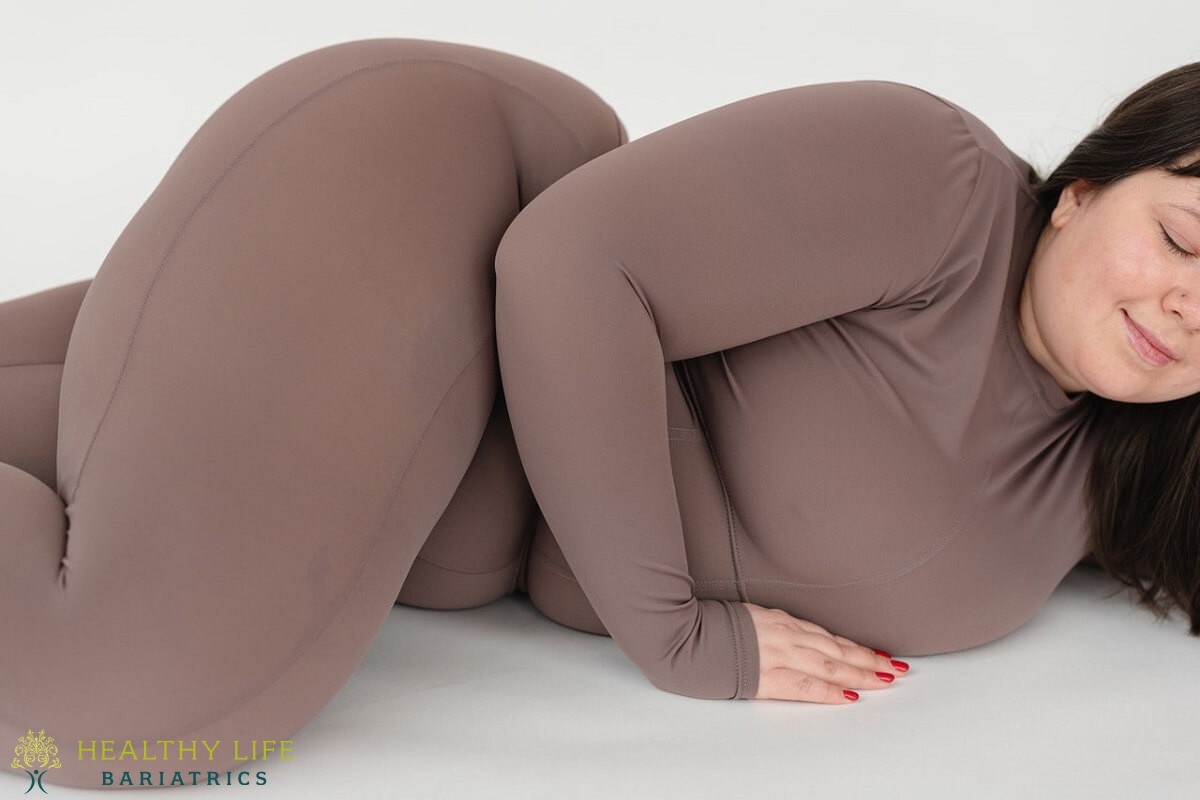3-Trans Fats Can Also Lead to Belly Fat
Fats come in several different types. Trans fats are added to foods like muffins, crackers, and other processed foods to help them last longer on the shelf. Our bodies have trouble processing trans fats. The more you eat, the more inflammation can occur in your body. This, in turn, can lead to insulin resistance, heart disease, and an accumulation of belly fat.
4-Sedentary Lifestyle Can Lead to More Fat
The more advanced technology we develop as a society, the less moving around we need to do. Many of us are used to sitting down and watching Netflix during our leisurely hours. At work, we may sit at desks in front of computers or otherwise remain stationary as we satisfy our duties. The more sitting you do, the greater the risks to your health. You are also more likely to have belly fat than someone who remains active throughout the day.
5-Not Enough Protein in Your Diet

A key staple of healthy eating is to consume only natural foods, and nothing processed. Fruits, vegetables, whole grains, and lean meats would then comprise most of your meals. The latter – lean meats, along with other proteins – are helpful in keeping you healthy and in your efforts to lose belly fat.
Eating a high protein diet holds several important benefits for the body. The more protein you eat, the easier it is to build muscle. Protein-rich meals make you feel fuller faster while eating. Protein also increases your metabolic rate while decreasing your caloric intake. Eat more protein and you’ll be less likely to have an accumulation of pesky fat on your abdomen.
6-Age & Menopause
As a female with belly fat, menopause can contribute to your weight gain. When you hit puberty as a teenager, a surge in the hormone estrogen told your body to begin storing fat in key “feminine” places, such as your hips and thighs to prepare for pregnancy.
Having subcutaneous fat in these areas is healthy and a natural part of being a woman. It’s when the fat builds to an excess that it becomes unhealthy.
When menopause happens a year after the woman has had her final menstrual period, her estrogen levels plummet. This causes fat to be stored around the abdomen instead of the hips and thighs.
The amount of belly fat you have will vary depending on genetics and your age when menopause begins. Younger women who reach menopause tend to gain a minimal amount of belly fat while older women are susceptible to larger bellies.
7-Higher Levels of Stress Can Lead to Weight Gain
When you feel stressed, the anxiety you feel is caused by cortisol, a hormone produced by your adrenal glands. Cortisol serves an important role as your body’s alarm system. When cortisol is activated, your body goes on high alert. This is meant for tense moments and short periods of time. When we become stressed for weeks or months at a time, all that cortisol can lead to health issues, one of them being excess weight gain.
Cortisol weight gain typically occurs in the belly area. To make matters worse, some of us tend to emotionally eat. Eating more calories than you burn during a time when cortisol is active in your body makes you even more susceptible to belly fat growth.
According to studies, women with larger waists compared to their hips tend to secrete more cortisol during stressful moments. If you have a higher waist-to-hip ratio and you’re constantly stressed, those factors could be to blame for your stomach fat problem.
8-The Wrong Type of Gut Bacteria Can Cause a Bigger Stomach

While it’s never appetizing to think about during meals, your gut is filled with hundreds of different types of bacteria. These millions of organisms live throughout your digestive system, many of them within your colon. A majority of these bacteria are beneficial to your health in one way or another. However, there is a type of bad bacteria that can cause problems.
Studies have shown that people suffering from obesity have higher concentrations of Firmicutes bacteria when compared to those of a healthy weight. These bacteria may increase the number of calories absorbed by your body from the foods you eat. This can lead to a “weight gain in the stomach area only” female problem.
Scientists refer to gut bacteria as your microbiome or gut flora. We rely on these bacteria to keep our immune system strong in its fight against sickness and disease. If you have an imbalance of gut flora, you are at higher risk of developing ailments like heart disease and type 2 diabetes.
A gut health imbalance can also lead to weight gain. More specifically, you are at a higher risk of gaining more fat along your abdomen.
9-Low Fiber Diet
Eating foods rich in fiber can help you maintain good health. A high-fiber diet is also one of the keys to controlling your weight. Consuming fibers has the curious effect of stabilizing your hunger hormones. This causes you to feel full while reducing your caloric consumption.
Unfortunately, many of us are used to eating diets high in refined carbohydrates and low in fiber. These foods have the opposite effect on satiety. You can feel hungrier after eating these foods, leading to unhealthy amounts of belly fat.
10-Pregnancy Can Lead to Weight Gain and More Difficult Weight Loss
Becoming pregnant is a miracle of life. It’s amazing how much a woman’s body changes to accommodate the new life growing inside her. Unfortunately, some of these changes can be permanent. After childbirth, you may find that fat is more difficult to lose, and muscular strength is harder to regain. These factors both during and after pregnancy can cause a woman’s belly fat to become more prominent.
11-Higher Belly Fat May Be in Your Genes
Your familial DNA has a lot to say about where you gain weight the most. Growing more belly fat may be rooted in your genes. This would follow the science, as experts believe that gene receptors for hormones like cortisol and leptin, which regulate caloric intake and fat storage respectively, could have genetic components. In 2014, researchers found three new genes linked to a higher waist-to-hip ratio and greater amounts of belly fat. Two of those weight gain genes are only found in women.
12-Lack of Sleep Could Contribute to Belly Fat Gain

Not getting adequate amounts of sleep each night is terrible for your health. Not only are you at higher risk for weight gain when you become sleep deprived, but your mood can suffer also. Anxiety, depression, and more belly fat are all in your future if you continue to lose valuable sleep.
If you feel you are getting enough rest each night but still feel tired and experience weight gain, you could suffer from a sleep disorder. A common sleep disorder is sleep apnea, which causes you to quit breathing during the night. Suffering from sleep apnea puts you at greater risk for being a fat stomach woman.
Are There Any Solutions Available for Your Big Stomach?









